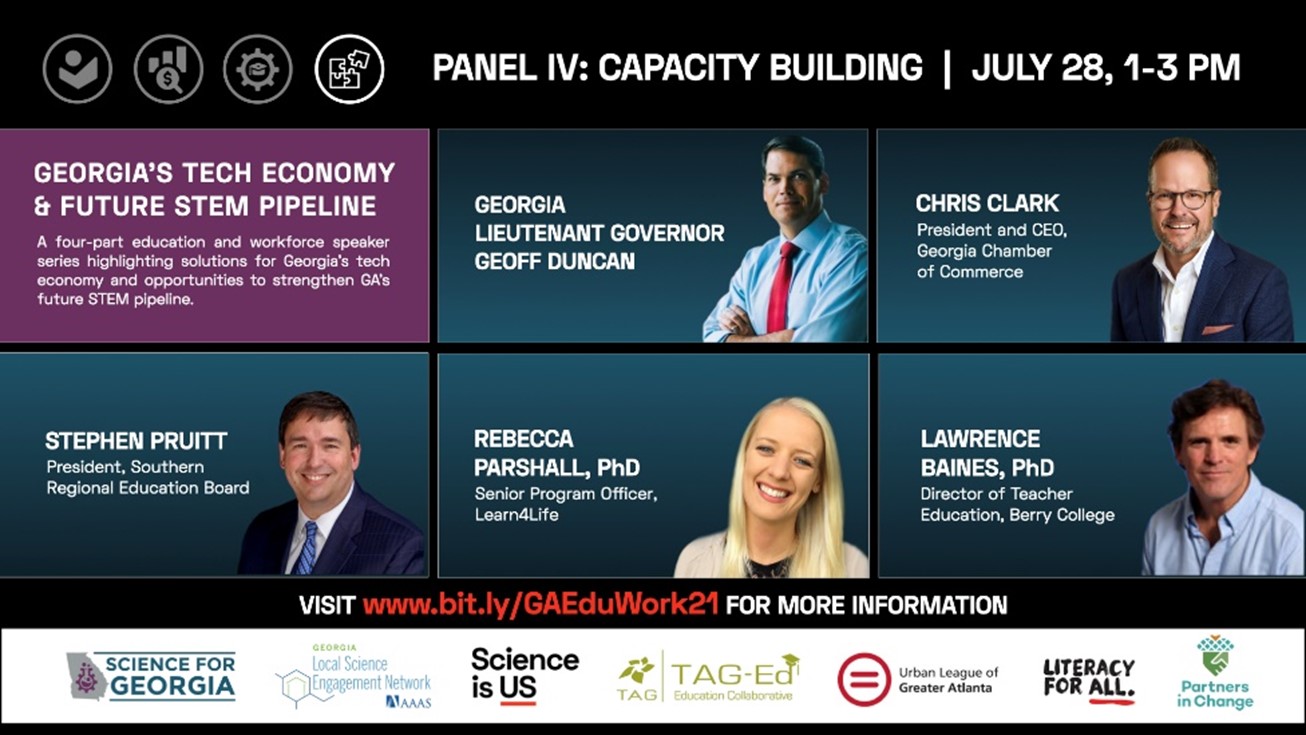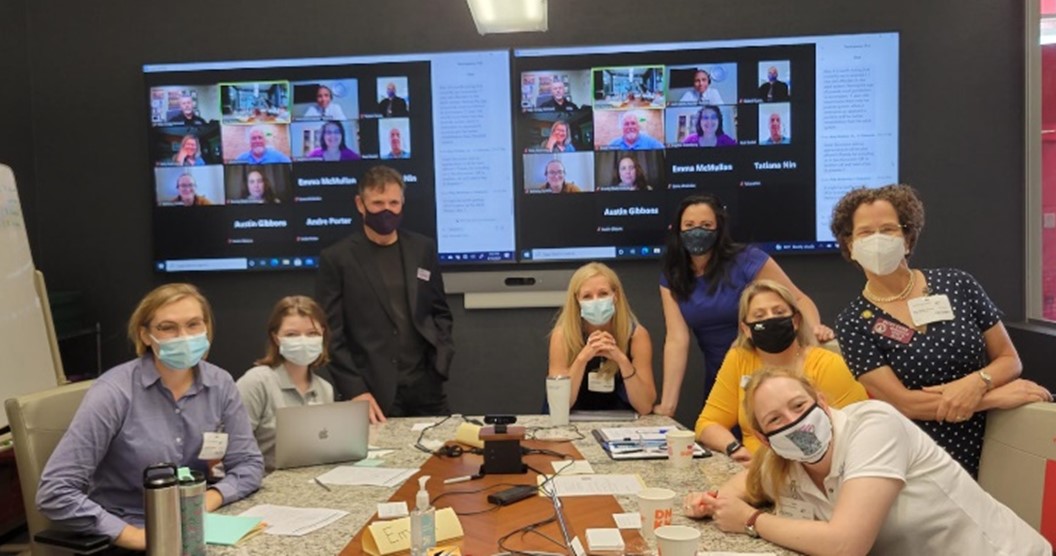The pace of automation and the switch to high-tech jobs is accelerating. 60% of jobs are STEM related, and 60% of those job holders do not need a bachelor’s degree. Georgia needs a literate workforce that can up-skill, re-skill, and grow the skilled workforce as the economy changes.
To ensure that Georgia’s citizens can keep up with the science and technology workforce demands, it is critical to build an educated, technical, STEM-ready skilled workforce and maintain a pipeline of students learning employment-ready skills.
To do that, we need to think about the actual people in the pipeline, from their home environment, to their health, to the infrastructure that supports them, to the parents and caregivers that can create a positive or negative cycle of learning.
STEM has an outsized impact on the state of GA. A 2021 economic impact report found that STEM supports 61 percent of jobs, 71 percent of economic output, and 66 percent of the state’s GDP. On par with national statistics, and contrary to a lot of conventional wisdom, six out of ten STEM professionals in Georgia do not hold a bachelor’s degree.
Only 1/3 of Georgia 3rd graders can read proficiently, and literacy is the key to unlocking most doors to success.
Since 2021 Science for Georgia has been on a journey to advocate for the use of evidence based best practices when educating and supporting Georgia’s current and future workforce. In 2023, the Georgia General Assembly passed two bills aimed at improving literacy in Georgia based, in-part, on our efforts to communicate and raise awareness of these best practices. We are thrilled to see science in action.
Literacy Terms

- Low Literacy / At Grade Level –Understand the words, answer simple questions, read through material in a certain amount of time.
- Literate / Proficient–Ability to comprehend text and learn (i.e. workforce ready)
- Evidence-based best-practice – a practice generally agreed upon by researchers to be a practice that is studied via rigorous trials, replicated in multiple settings, and withstands the test of peer-review.
- Whole Child Pest Practices - Evidence-based best-practices to improve reading outcomes all along the pipeline are not just instruction methods, but rather programs that address at least one of Get Georgia Reading Campaign’s Four Pillars: language nutrition, access, positive learning climate, and teacher preparation and effectiveness. (examples: Talk With Me Baby, Broadband Access, Reading Resource Coordinators).
- Literacy Instruction Best Practices – As people learn to read, they are building mental muscle that enables them to read words and sentences with speed, accuracy, and comprehension. Evidence-based literacy instruction utilizes the “muscle building” techniques: building from letter sounds, to combination sounds, to whole words, to entire sentences. At the same time, it builds a library of defined words. By the end of third grade, when given a block of text, proficient readers have the mental muscle to easily read the words and know what those words mean; therefore, they can comprehend the block of text to learn.
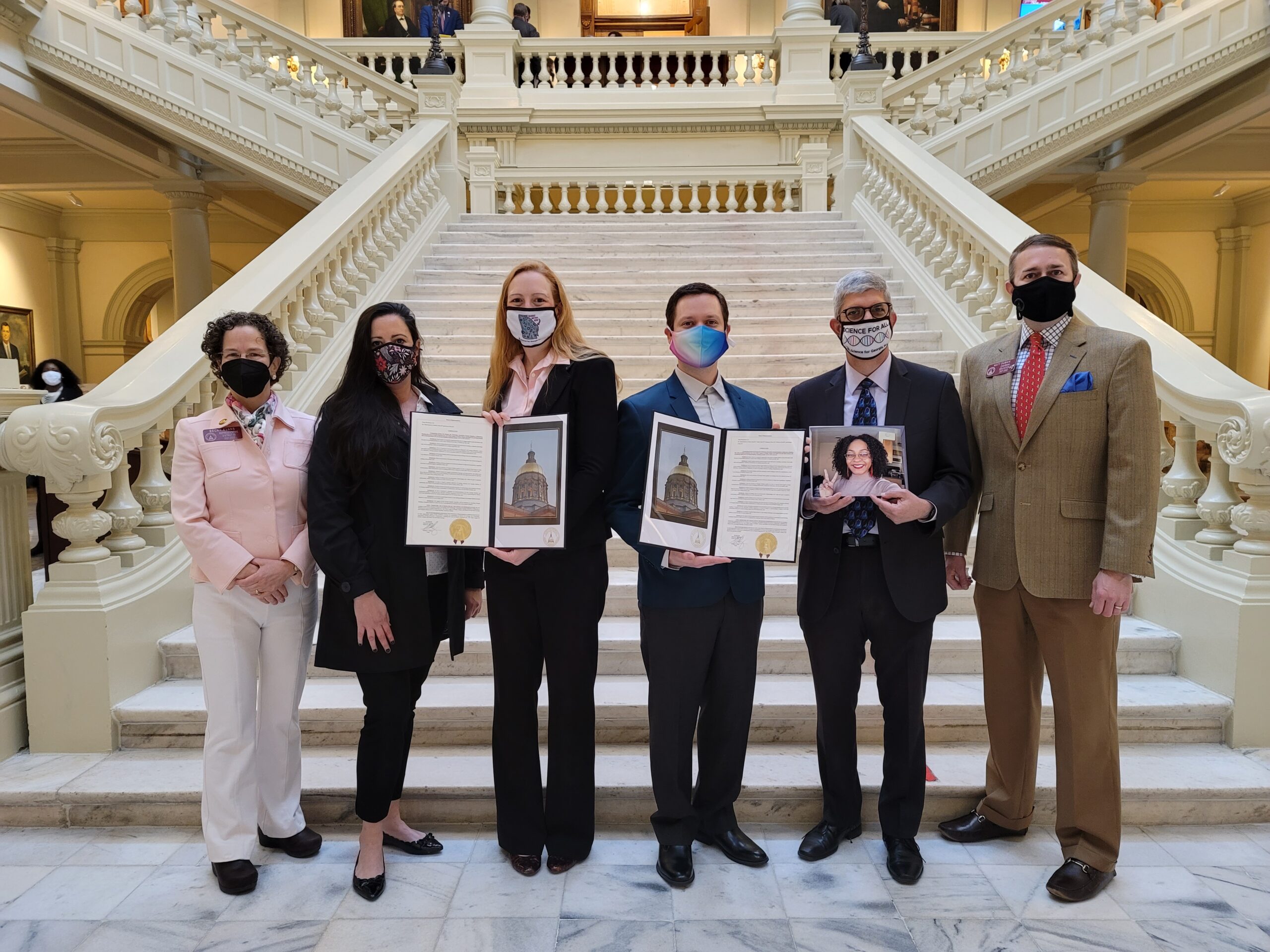
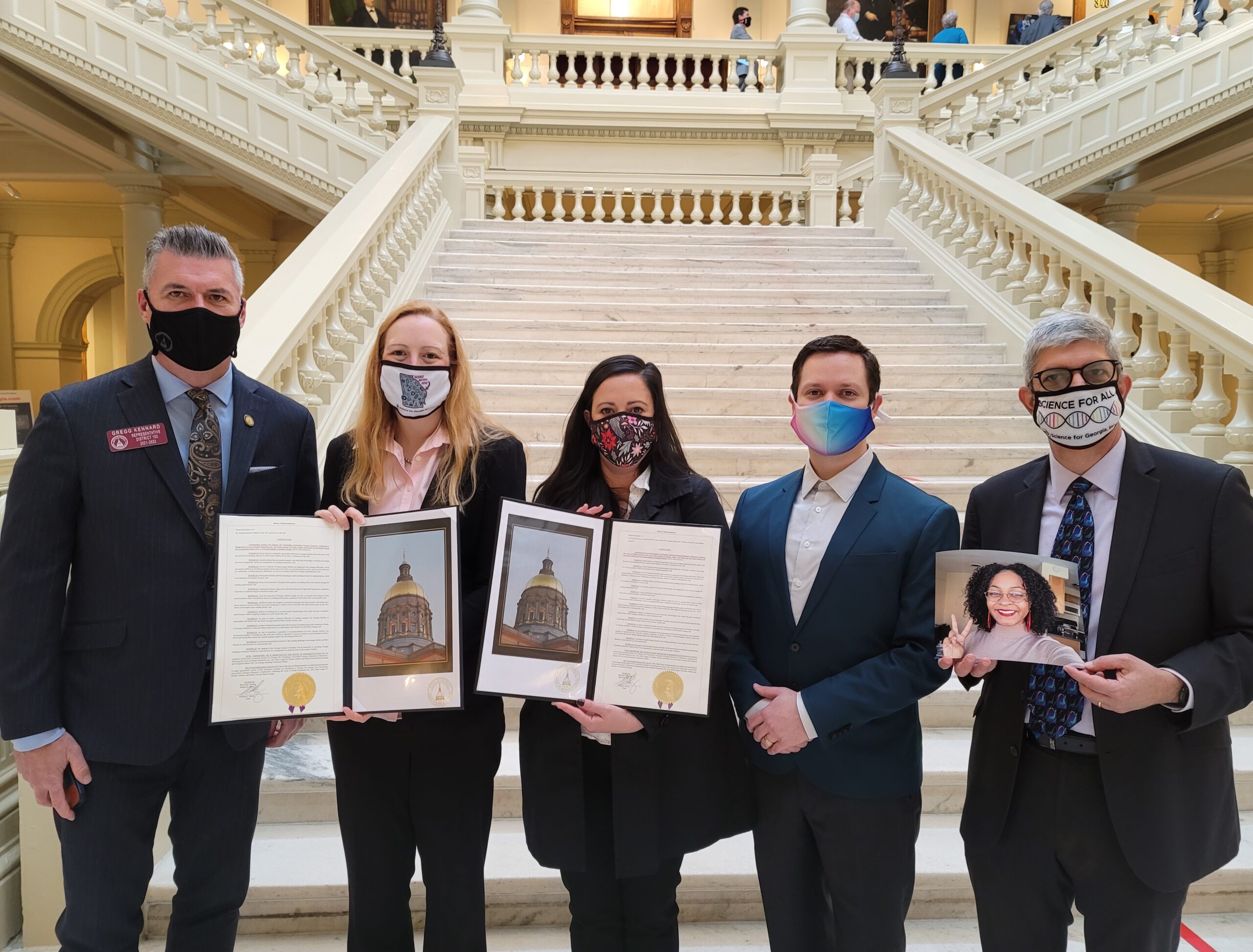

March 2021 - The Beginning
March 2021 – spearheaded by our fabulous intern Paige we worked with the Georgia General Assembly to declare March “Georgia Reading Awareness Month”, compiled a resource guide, and summarized why 3rd grade is an important literacy inflection point.
Summer 2021
Science for Georgia hosted a Speaker Series on Education and Workforce – a four part series featuring policy makers, business leaders, educators, community groups, and academics.
This series culminated in a closed-door Roundtable. This group of legislators, educators, academics, and civic leaders recommend four things:
Spring 2022
The Georgia General Assembly passed HR 650 – a house study committee on Literacy Instruction. Science for Georgia’s Executive Director Amy Share provided testimony for this legislation and was appointed to the study committee.
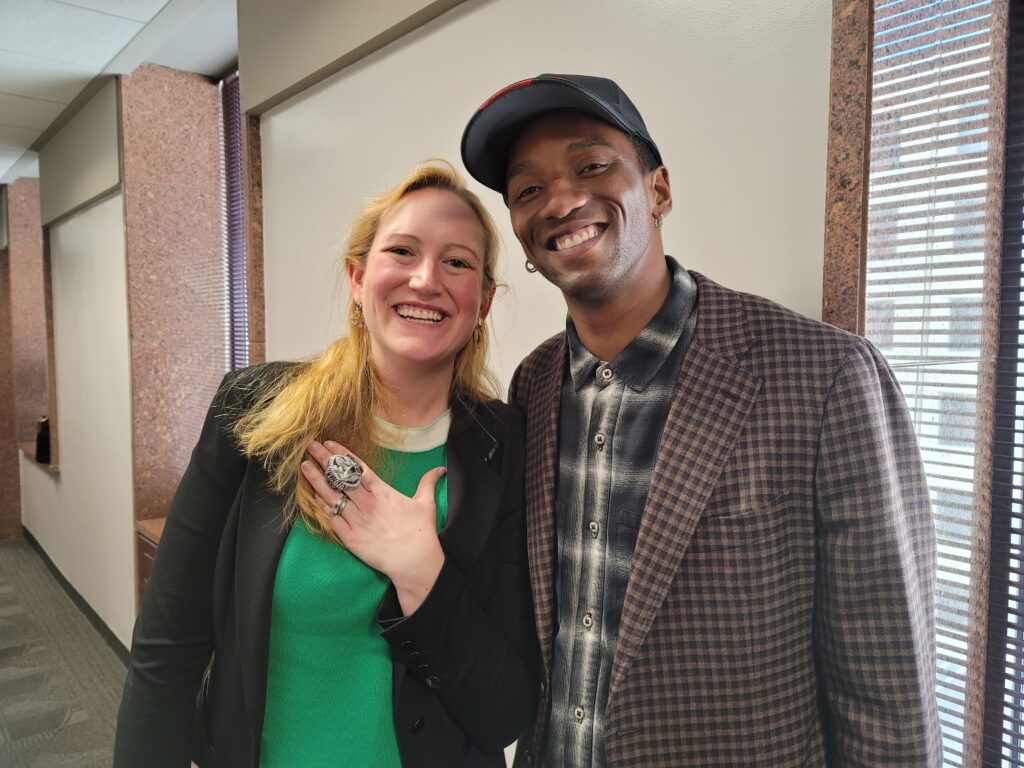
Summer / Fall 2022
For the committee, Science for Georgia pulled together an introduction to evidence-based literacy instruction and information from various programs that were achieving success in Georgia.
Things to Do Right Now
Help kids enter kindergarten ready to read
Reading proficiently at 3rd grade is the best indicator of high school graduation. To do this kids need to enter Kindergarten ready to learn.
Reading to kids 15 minutes a day is the best way to a strong start.
Several partners have provided a set of e-books, e-learning, and tips & tricks for kindergarten readiness.
Affordable Early Childhood Education
20% of Georgia children live in poverty. Georgia has capacity for only 15% of those children in Head Start
Early Childhood Daycare and Pre-K Programs are a win, win - nurturing children's development and enabling parents to work a steady job. These help break the cycle of poverty. In Georgia, low-income children that enrolled in preschool had a higher academic achievement and proficiency on 3rd grade test scores.

